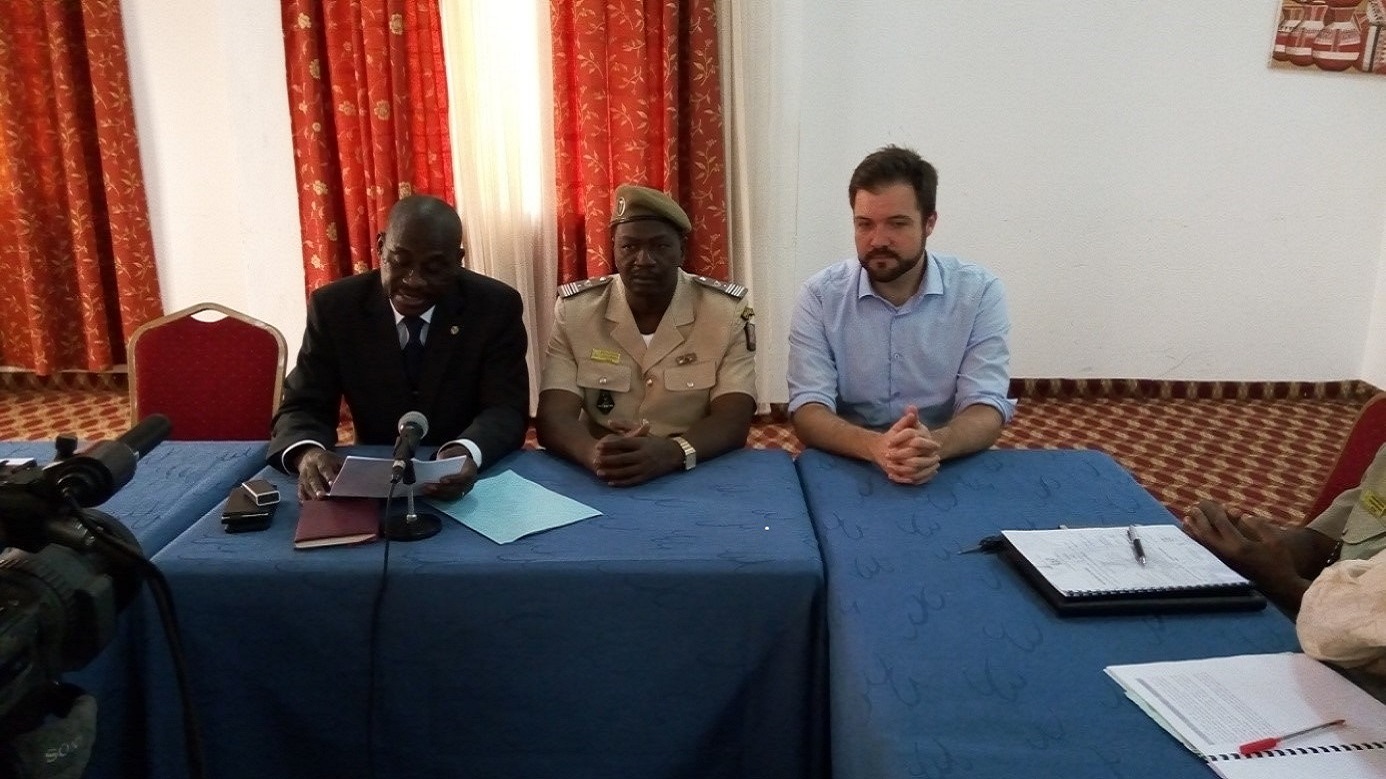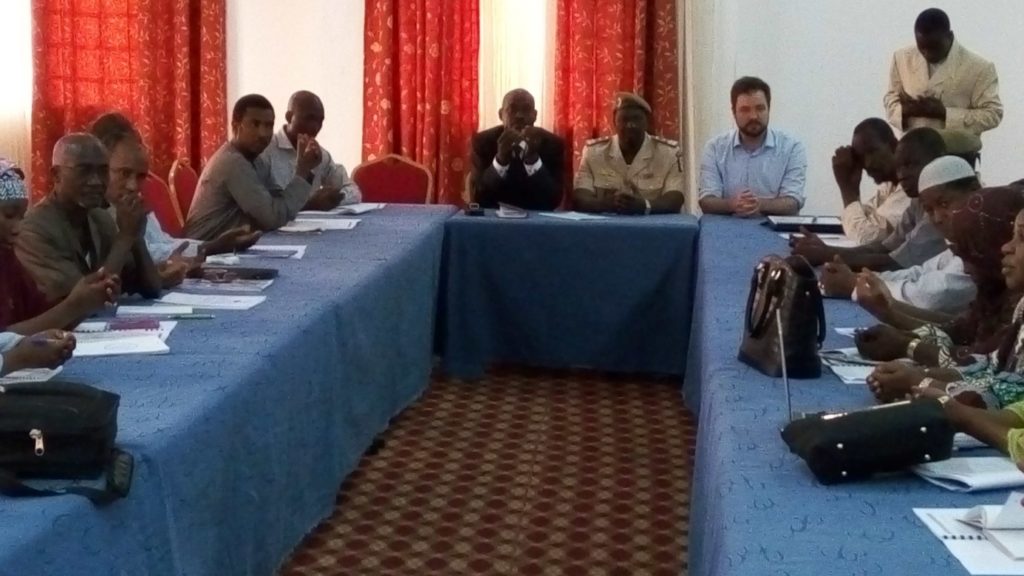On 1-2 June, the “Conseil National de l’Environnement pour un Développement Durable (CNEDD),” in charge of coordinating the National Climate Change Learning Strategy formulation, has organised a workshop at the midpoint of the process in Niamey.

The workshop brought together 50 participants from ministries of different sectors, civil society, international NGOs, technical and financial partners and learning centres. The main goals were: 1) to examine and validate the reports of the learning needs and capacity to deliver learning assessments, and 2) to identify the priority actions of the strategy and discuss the next steps of the Strategy development process.

Presidency at the workshop opening: Executive Secretariat of CNEDD, Mr. Kamayé Maazou on the left, the General Manager of Forest and Water, Major Colonel Abdou Malam Issa in the middle and the representative of UN CC:Learn Secretariat, Mr. Vincens Côté.
The workshop was inaugurated by the Executive Secretary of the CNEDD, Mr. Kamayé Maazou, in the presence of a UNDP representative , Mr. Lawali Mahamane, the Representative of the United Nations Climate Change Learning Partnership (UN CC:Learn), Mr. Vincens Côté and the General Manager of Forest and Water, the Major Colonel Abdou Malam Issa on behalf of the Ministry of the Environment and Sustainable Development. In his speech, the SE/CNEDD highlighted the importance of developing the National Climate Change Learning Strategy for Niger’s Government. He also warmly thanked UN CC:Learn and the Swiss Agency for Development and Cooperation for their technical and financial support to the project implementation.
The strategy in full swing, an ongoing process
The Coordinator of UN CC:Learn project in Niger, Mr Monsieur Gousmane Moussa, then presented the history of the process to all participants. In his speech, he remarked that the project is in its first stage, which includes activities such as: validation of the background report and the five priority sectors established for the Strategy (Education, Health, Agriculture, Livestock breeding, Water Resources); meetings of the Technical Monitoring Committee; group sessions related to the learning needs and capacity to deliver learning assessments, which were entrusted to the two national consultants. One of the consultants also presented the results of these two studies, underlining the principal axis and actions.

The coordinator of the project Gousmane Moussa standing.
Frank and fruitful discussions in a participatory process
The revision, modification and validation processes undertaken at the workshop were facilitated by the committee of three people led by Mr Diallo Abdoulaye, representative of the Ministry of National Education and a member of the Technical Monitoring Committee. Frank and fruitful discussions arose from the participants, with a focus on the form and content of the document. Likewise, regarding the learning needs and capacities to be taught in the five main sectors, four principal axes with their respective activities were agreed.
 Participants at the workshop.
Participants at the workshop.
Coming stages and recommendations
The Niger UN CC:Learn Coordinator on behalf of SE/CNEDD closed the workshop by expressing satisfaction over the process and thanks to the participants. He reminded all participants the next steps of the process, particularly the revision of the strategy based on the validated document and by the Technical Monitoring Committee.
The participants also made several recommendations: the realistic prioritization of the activities considering the financial resources, the improvement of other key player’s participation (learning centres, PTFs, etc.) and finally, the assignment of the financial resources by the national budget.

